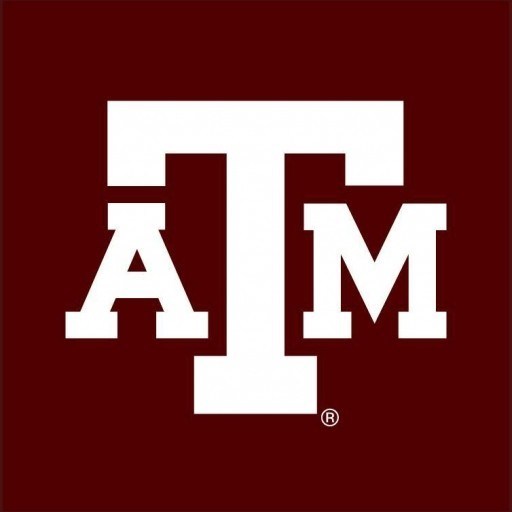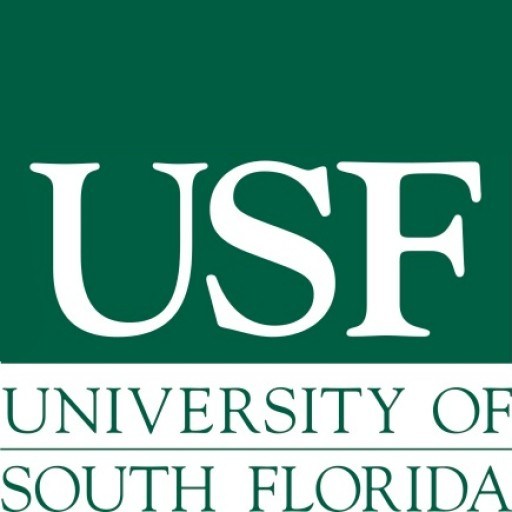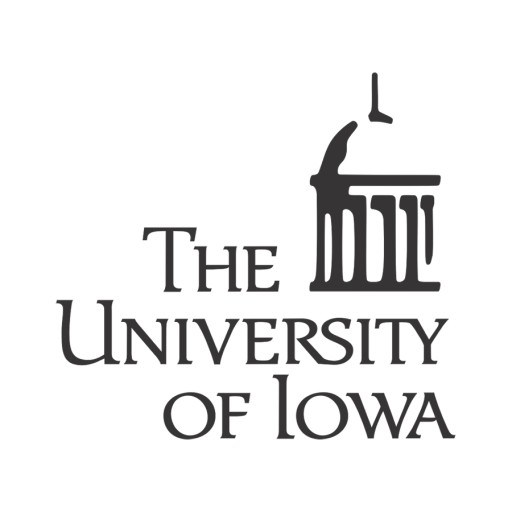Photos of university / #tamu
The Bachelor of Science in Computer Science at Texas A&M University offers students a comprehensive and rigorous education in the fundamental principles of computing, programming, and information technology. Designed to prepare students for diverse careers in the tech industry, academia, and research, this program combines theoretical knowledge with practical skills to ensure graduates are equipped to meet the evolving challenges of the digital world. The curriculum covers core areas such as algorithms, data structures, software development, computer architecture, operating systems, and databases, providing a solid foundation in both hardware and software aspects of computing. Students also have opportunities to explore specialized fields including artificial intelligence, machine learning, cybersecurity, data science, and software engineering through elective courses. The program emphasizes hands-on learning through laboratory exercises, projects, and internships, enabling students to gain real-world experience and develop problem-solving abilities. Texas A&M University provides state-of-the-art facilities, experienced faculty, and a collaborative environment that fosters innovation, critical thinking, and teamwork. In addition to technical expertise, students develop skills in communication, ethics, and professional practice, preparing them to excel in multidisciplinary teams and leadership roles. The program encourages undergraduate research and offers opportunities for involvement in cutting-edge projects, conferences, and industry partnerships. Graduates of the Computer Science program at Texas A&M University are highly sought after by employers across various sectors, including technology, finance, healthcare, government, and more. With a focus on creating versatile and skilled professionals, the program aims to produce graduates who can adapt to rapid technological advancements and contribute to the development of innovative solutions that impact society positively.
Graduate Course Descriptions
- Programming with C and Java. (3-0). Credit 3.
- Object-Oriented Programming, Development and Software Engineering. (3-0). Credit 3.
- Database Systems and Applications. (3-0). Credit 3.
- Programming Languages. (3-0). Credit 3.
- Compiler Design. (3-0). Credit 3.
- Software Engineering. (3-0). Credit 3.
- Database Systems. (3-0). Credit 3.
- Hypertext/Hypermedia Systems. (3-0). Credit 3.
- Operating Systems and Applications. (3-0). Credit 3.
- Applied Networks and Distributed Processing. (3-0). Credit 3.
- Operating Systems. (3-0). Credit 3.
- Computer Architecture. (3-0). Credit 3.
- Co-Design of Embedded Systems (CODES). (3-0). Credit 3.
- Networks and Distributed Computing. (3-0). Credit 3.
- Computational Geometry. (3-0). Credit 3.
- Language, Library, and Program Design Using C++. (3-0). Credit 3.
- Generic Programming. (3-0). Credit 3.
- Sketch Recognition. (3-0). Credit 3.
- Artificial Intelligence. (3-0). Credit 3.
- Parallel Algorithm Design and Analysis. (3-0). Credit 3.
- Theory of Computability. (3-0). Credit 3.
- Computational Biology. (3-0). Credit 3.
- Analysis of Algorithms. (3-0). Credit 3.
- Speech Processing. (3-0). Credit 3.
- Intelligent Agents. (3-0). Credit 3.
- Machine Learning. (3-0). Credit 3.
- Intelligent User Interfaces. (3-0). Credit 3.
- AI Robotics. (3-1). Credit 3.
- Neural Networks. (3-0). Credit 3.
- Complexity Theory. (3-0). Credit 3.
- Fuzzy Logic and Intelligent Systems. (3-0). Credit 3.
- Quantum Algorithms. (3-0). Credit 3.
- Computer Graphics. (3-0). Credit 3.
- Seminar in Intelligent Systems and Robotics. (3-0). Credit 3.
- Cortical Networks. (3-0). Credit 3.
- Geometric Modeling. (3-0). Credit 3.
- The Digital Image. (3-2). Credit 4.
- Computational Linear Algebra. (3-0). Credit 3.
- Integrated Systems Design Automation. (3-0). Credit 3.
- Distributed Processing Systems. (3-0). Credit 3.
- Real-Time Systems. (3-0). Credit 3.
- Wireless and Mobile Systems. (3-0). Credit 3.
- Advance Networking and Security. (3-0). Credit 3.
- Pattern Analysis. (3-0). Credit 3.
- Seminar in Human-Centered Computing and Information. (3-0). Credit 3.
- Distributed Algorithms and Systems.(3-0). Credit 3.
- Information Storage and Retrieval. (3-0). Credit 3
- Computer-Human Interaction. (3-0). Credit 3.
- Computer Supported Collaborative Work. (3-0). Credit 3.
- Digital Libraries. (3-0). Credit 3.
- Testing and Diagnosis of Digital Systems. (3-0). Credit 3.
- Seminar. (1-0). Credit 1.
- Professional Internship. Credit 1 to 16.
- Directed Studies. Credit 1 to 12.
- Special Topics in...Credit 1 to 4.
- Research. Credit 1 or more.
- Research for thesis or dissertation.
Required Documents
- ESSAYS
- $90 PROCESSING FEE
- OFFICIAL HIGH SCHOOL TRANSCRIPT
- OFFICIAL SAT or ACT Scores (including optional essay)
- PROOF OF ENGLISH PROFICIENCY
Applicants whose native language is not English are required to submit proof of English proficiency, which is satisfied by one of the following:
- a minimum TOEFL score of: 550 for paper-based testing (p-BT) or 80 internet-based testing (i-BT)
- a minimum SAT Critical Reading (Verbal) score of 500
- a minimum ACT English score of 21
- a minimum IELTS score of 6.0 overall band
- a minimum PTE Academic score of 53
- completing all four years in a high school within the U.S.
Fellowships & Scholarships
- AFCEA Educational Foundation Undergraduate and Graduate Scholarships
Eligibility: Undergraduate, graduate students. - AT&T Labs Fellowship Program
Eligibility: Minority and women students who are U.S. Citizens or permanent residents and who are pursuing Ph.D. studies in computer and communications-related fields. - BrainTrack Computer Science Scholarship
Eligibility: currently taking classes in an appropriate computer science or IT degree program with at least one semester of studies completed. - Computer Science Online (Funding Your Science Degree)
Eligibility: Undergraduates, Graduates (please see site) - DOE Computational Science Graduate Fellowships
Eligibility: U.S. citizens or permanent resident aliens. - DOE Office of Science Graduate Fellowship Program
Eligibility: Undergraduate senior students or first-year or second-year graduate students. - Fannie and John Hertz Foundation Fellowship
Eligibility: PhD students (can apply as seniors), US citizens or permanent residents. - Ford Foundation Diversity Fellowships
Eligibility: Predoctoral level, dissertation level, postdoctoral level. - Gates Millennium Scholars
Eligibility: Undergraduates (apply as high school seniors); US citizens or permanent residents; underrepresented minority; GPA of 3.3 on a 4.0 scale; demonstrated financial need. - Gilman International Scholarship
Eligibility: undergraduate student applicant provides proof that he/she will be receiving a Federal Pell Grant and is applying to or has been accepted into a study abroad program eligible for credit by his/her accredited institution. - Google Anita Borg Scholarships
Eligibility: Undergraduate, graduate students. - Hertz Foundation
Eligibility: Graduate students. - Hispanic Scholarship Fund
Eligibility: Undergraduates (high school seniors can apply), graduate students. - IBM PhD Fellowship Program
Eligibility: PhD students; must be nominated by faculty member. - Information Assurance Scholarship
Eligibility: 18 years of age or older and US citizen. - Jack Kent Cooke Foundation Scholarship
Eligibility: Undergraduates, graduate students. - Microsoft Scholarships
Eligibility: Undergraduates. - NAE Fellowships
Eligibility: Graduate students. - NSF East Asia and Pacific Summer Institute for Engineering Graduate Students
Eligibility: U.S. citizen or permanent resident. - NSF Graduate Research Fellowship Program (GRFP)
Eligibility: Undergraduates, graduate students. - National Defense Science and Engineering Graduate Fellowship
Eligibility: Fellowships are awarded to applicants who will pursue a doctoral degree. - National Gem Consortium Fellowship
Eligibility: Under-represented graduate students. - National Physical Science Consortium
Eligibility: Graduate students. - National Science and Defense Engineering Graduate Fellowship Program (NDSEG)
Eligibility: Graduate students (can apply as seniors). - US citizenship required.
- National Society of Professional Engineers
Eligibility: Undergraduate (can apply as high school senior) and graduate students. - Sandia National Laboratories Truman Fellowship
Eligibility: Undergraduate, graduate students. - Texas Space Grant Consortium (TSGC) Undergraduate Scholarships
Eligibility: US Citizens, undergraduates. - U.S. Department of Homeland Security Undergraduate Scholarships and Graduate Fellowships
Eligibility: Undergraduate, graduate students.
Research Internships
- CRA-W Distributed Mentor Program: Summer research internships for undergraduates
- NASA Graduate Student Research Program (GSRP)
- NASA Undergraduate Student Research Program: Research internship program (typically in the summer)
- Google Engineering Summer Internship
Degree Plan
Requirements for the MCS degree include:
- At least 18 credit hours of graded CSCE graduate coursework (excluding CSCE 681, 684, 685, 691).
- Three breadth CSCE courses, one selected from each of these sets: Theory (627, 629), Systems (605, 613, 614) and Software (604, 606, 655). These must be passed with a grade of B or better. These count toward the requirement of 18 hours of graded CSCE graduate coursework.
- At most one approved three-credit 400–level CSCE undergraduate course. See Section 4.4. This course does NOT count towards the 18 hours of CSCE graded graduate coursework.
- Up to 6 credit hours of non-CSCE graded graduate coursework (excluding 681, 684, 685, 691).
- 1 credit hour of CSCE 681 (Graduate Seminar).
- Up to 3 credit hours of CSCE 685 (Directed Studies).
- A total of at least 30 credit hours satisfying the above requirements.
The major steps, and deadlines for completing them, required for the MCS degree is outlined in Section 4.3. Section 4.4 lists restrictions on the courses that can be used on the degree plan, as well as other common questions/issues. For additional information and clarification, please see the graduatuate catalog and the Department’s graduate program webpages.










